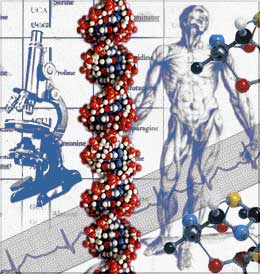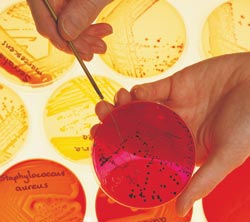 Today, in my e-mail inbox, I come across a link to an article about a new research development in the treatment of Non-Hodgkin Lymphoma. Evidently, there’s a new drug currently in clinical trials, called Epratuzumab. Used in combination with Rituximab (trade name, Rituxan – the drug I got along with my chemotherapy), Epratuzumab shows promise in the treatment of relapsed NHL patients.
Today, in my e-mail inbox, I come across a link to an article about a new research development in the treatment of Non-Hodgkin Lymphoma. Evidently, there’s a new drug currently in clinical trials, called Epratuzumab. Used in combination with Rituximab (trade name, Rituxan – the drug I got along with my chemotherapy), Epratuzumab shows promise in the treatment of relapsed NHL patients.I’m in remission now, and I hope that I’ll stay there for a very long time. Yet, from time to time the thought occurs that one day I could go for a scan, and the cancer will have come back. I’ve done a little reading, to find out what would likely be the next step, when and if it does.
I don’t think I’d receive the CHOP chemo cocktail I received before. Most patients, I’m told, only receive that combination once in a lifetime (in fact, I read somewhere that 8 doses of CHOP is the lifetime maximum; I received 6). With relapsed cases, the doctors typically try something different.
 There’s always the possibility of stem-cell transplant, as well – which is basically a method that allows patients to be treated with very harsh chemotherapy drugs. These chemo drugs are so powerful that they completely destroy the immune system, and therefore – without some intervention – would indirectly kill the patient, who would succumb to another illness or infection. Accompanied by a stem-cell transplant, though (using either the patient’s own, self-donated stem cells, or cells from a compatible donor), these heavy-duty drugs can be made safe to use. The doctors can allow the chemo drugs to go ahead and take down the immune system, because they can then use the transplanted stem cells to re-create it.
There’s always the possibility of stem-cell transplant, as well – which is basically a method that allows patients to be treated with very harsh chemotherapy drugs. These chemo drugs are so powerful that they completely destroy the immune system, and therefore – without some intervention – would indirectly kill the patient, who would succumb to another illness or infection. Accompanied by a stem-cell transplant, though (using either the patient’s own, self-donated stem cells, or cells from a compatible donor), these heavy-duty drugs can be made safe to use. The doctors can allow the chemo drugs to go ahead and take down the immune system, because they can then use the transplanted stem cells to re-create it.Another option is radioimmunotherapy – most notably two drugs, Bexxar and Zevalin, that actually carry tiny, radioactive particles directly to cancerous cells.
I suppose there could also be the possibility of radiation therapy – although that’s not usually indicated as a primary treatment for NHL. If I get radiation, it would probably be as a follow-up to some other treatment.
 Any one of those options – another round of chemotherapy, radioimmunotherapy, radiation, or megadose chemotherapy with a stem-cell transplant – is a daunting prospect. It’s encouraging to hear of another monoclonal antibody treatment, similar to Rituxan, that shows real promise.
Any one of those options – another round of chemotherapy, radioimmunotherapy, radiation, or megadose chemotherapy with a stem-cell transplant – is a daunting prospect. It’s encouraging to hear of another monoclonal antibody treatment, similar to Rituxan, that shows real promise.The world of NHL treatment is changing constantly. However far into the future my remission may last, when and if I do relapse, I will face an expanded array of treatment options. And that’s encouraging.
No comments:
Post a Comment